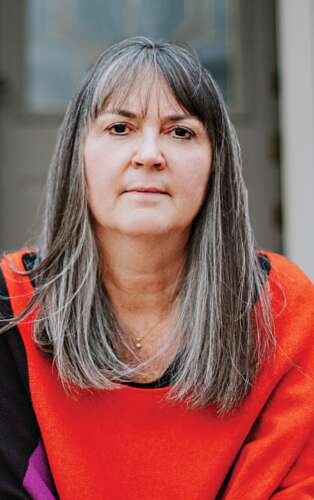In the field of violence against women and girls, University of Guelph sociology professor Dr. Myrna Dawson often finds herself surrounded by women.
In decades of researching gender-based violence, or femicide, Dawson has observed countless women across the world doing the work, driving the awareness and advocating for slow-coming changes.
This kind of work brings much emotional labour and requires a strong mental resolve to navigate vicarious trauma and burnout, she says.
Recently, the number of men entering the field has started to increase, she says. At a recent United Nations conference, she estimates that approximately one-third of the attendees were men.
“The gender-based violence sphere, the male violence sphere, has always been female-dominated,” Dawson explains. “Which is understandable to a degree, but it really speaks to the fact that we have not engaged men and boys enough in this topic.”
A male international student in a female-dominated field
Emmanuel Rohn, an international PhD student from Ghana studying under Dawson, says it was Dawson’s reputation globally that led him to U of G.

In his home country, traditional gender roles and patriarchal norms are deeply entrenched, which can influence attitudes towards gender equality and violence against women. These norms may sometimes contribute to the justification or minimization of violence against women.
In Canada, he wanted to connect with researchers and advocates working in a more socially progressive country with better enforcement of its laws.
“I am particularly concerned about human rights and gender equality, especially coming from a developing country where there are so many abuses and infringement of the rights of women and girls,” says Rohn, whose research is driven by the desire to understand the root causes of such violence to find solutions.
“My specialization is gender-based violence,” he explains. “It has an enormous impact on communities, families and societies at large. Its impact is so profound. Addressing this issue is particularly crucial to advance justice for women and girls.”
At U of G, Rohn has discovered a diverse community of international students, funding opportunities, and unique teaching and research opportunities to achieve his goals.
“It is a supportive environment for young researchers like myself to engage with faculty members and enormous resources such as Prof. Dawson’s Centre for the Study of Social and Legal Responses to Violence (CSSLRV). I believe this makes it an exciting place for academic work and engagement.”
U of G research has global impact for women and girls
As founder and director of CSSLRV and the Canadian Femicide Observatory for Justice and Accountability, Dawson has amassed a substantial body of work and a network of colleagues that extends globally.
Each year, to mark the International Day for the Elimination of Violence Against Women and the 16 Days of Activism Against Gender-Based Violence that follow, the Observatory partners with women’s organizations. The campaigns tirelessly drive awareness to try to infiltrate the complacency that can derive from the frequency and normalization of such violence.

Often, those initiatives rely on the numbers. In Canada, a woman or girl is killed every two days, on average. In 2023, more than 160 women and girls have been killed to date, mostly by men, according to the Observatory’s data — numbers that have continued to rise since 2019.
Aura Freedom, an international non-profit organization with a presence in Canada, partnered with the Observatory and the Native Women’s Resource Centre in Toronto, for a campaign that gets straight to the heart of the issue. “The Body Bag For Her” uses fashion and wordplay in a hard-hitting reminder that, “this is the bag women are dying for.”
The goal of the campaign and the focus on awareness continues the fight to have femicide legally recognized in legislation and the Criminal Code of Canada. Femicide is a form of homicide that directly targets women and girls, most often perpetrated by men and should be recognized accordingly, Dawson says, in order to begin truly tackling the factors that cause it.
For many years, violence against women was deemed a “family matter” to be dealt with personally. In Ghana, that mindset persists, and coupled with deeply entrenched gender norms, influence how men treat women, contributing to the objectification and normalizing of violence against women, Rohn says.
As a man doing this research, Rohn knows there are unique responsibilities for him that include challenging those gender norms and dismantling patriarchal structures.
“Recognizing the role that men play in preventing violence against women involves engaging other men in conversations about masculinity, consent, respect,” he says. “But also, being an ally and advocating for women’s rights while being aware of the importance of amplifying women’s voices and experiences in his area.”
Dawson’s global reputation is also having an impact closer to home. This month, following 70 other Ontario municipalities, the City of Guelph introduced a motion to recognize intimate partner violence as an epidemic. It follows recommendations from a jury released last year following an inquest into the killings of three women by one man in Renfrew County.
“It’s great to see Guelph coming onboard with this,” says Dawson, welcoming any push that could lead to significant and necessary changes that will save lives.
Still, she cannot stress enough: “Call it femicide.”
Contact:
Dr. Myrna Dawson
mdawson@uoguelph.ca
